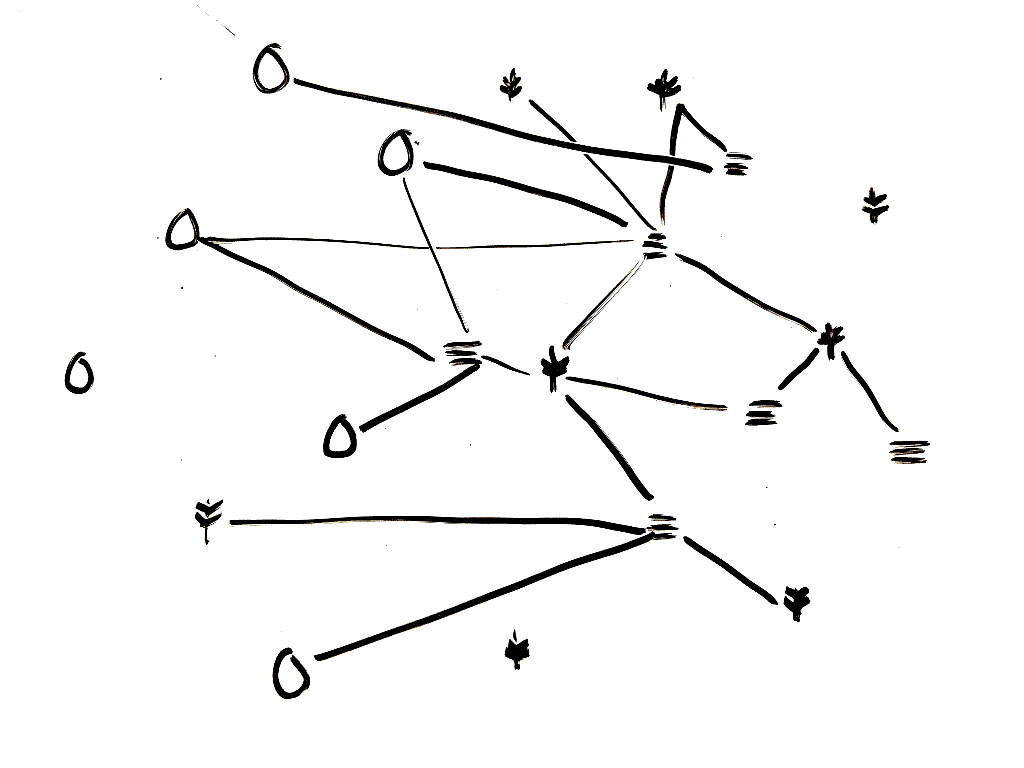Funding farmOS
Funding farmOS
How to sustain free software
When I talk to people about farmOS, or open source software development in general, I am often asked: "how do you support yourself?" It's a valid question. farmOS is free (as in both beer and speech). So how do you make money giving something away?
The case for Free and Open Source Software
If a farmer gave away their harvests for free, they would be unable to pay their expenses, their workers, and themselves. Farming takes limited resources (soil, inputs, labor) and transforms them into a limited product (food). Software is different. It still requires limited resources to create (the hours and attention of a programmer), but once the code is written it can be copied for free.
Proprietary software licenses put restrictions on this ability to copy, in order to turn an unlimited product into a limited one, so that it can be sold at a premium. A free software license, on the other hand, explicitly allows users to copy, modify, and redistribute the software without restriction.
This allows users to extend, modify, and build on top of the code that was written by others. Instead of being restricted and controlled by a single company or individual, communities of users and developers can grow around the project to build and support it. Furthermore, the development process is cumulative, building on the work that came before ("standing on the shoulders of giants").
This gives the power back to the users, and everyone benefits from the shared effort. For these reasons, open source software has become the backbone of modern computing, and many people use it every day without even realizing it.
Sustainability
It's important to recognize that software does take work, both to create it and to maintain it. And that is what requires funding. In order for a project to sustain itself into the future, it needs to support the core developers that build and maintain it. It also needs to maintain the community infrastructure that enables and encourages collaboration.
Without the ability to "sell" the software, open source developers have come up with other ways of supporting their efforts. Nadia Eghbal has compiled an exhaustive list of all the ways that people get paid for open source work, with pros and cons of each. It is a major challenge, and what works for one project may not work for others. Nevertheless, many open source communities and companies are making it work, and more users are seeing the value in supporting the projects they use.
farmOS and Farmier
When I started farmOS, I wanted to make sure that the project remained independent of any company. So I created farmOS as the open source project, and Farmier for providing services like hosting, support, and sponsored feature development. Farmier is not backed by venture capital. It is supported by the farmers and organizations that use farmOS, and I plan to keep it that way. I value privacy and data ownership myself, and I want that to be a priority for Farmier, as well.
Sponsored development
The primary means of supporting my time on farmOS thusfar has been through sponsored development projects. I work directly with farmers, universities, and other organizations to build features that address a specific need. We approach this as a standard development contract: we make a plan, estimate the time it will take, and then build it. When it's done, it can be released to the farmOS community, and sponsorship credit is given to the funders on farmOS.org.
This model is used successfully in other open source communities, as well. For example, in the Drupal community, developers use open source modules to build websites for their clients, and often add features or fix bugs in the process. These changes are then contributed back "upstream" to the module itself, so that they can be used again in future projects. A great example of this is Jacob Rockowitz's work on the Webform module, which he describes in his blog post, "Sponsor a Feature".
Crowdfunding
Sponsored development is a great way to add new features to farmOS, but building things is only part of what makes an open source project successful. Just like other forms of public infrastructure, free software requires ongoing maintenance. And supporting the community that grows around a project can be a full time job in itself.
In an effort to support the ongoing maintenance and community building work, the farmOS project accepts donations through an Open Collective page. This allows the project to collect one-time and recurring donations on it's own, apart from Farmier or other centralized organizations. These funds can be managed transparently, by submitting expenses for community approval, all in public.
If you think farmOS is a worthwhile effort, consider becoming a backer/sponsor through Open Collective. Even if it's just $2/mo, if enough people show support, it can go a long way to supporting the project into the future.
For more information, read "Donate to farmOS" on farmOS.org.
